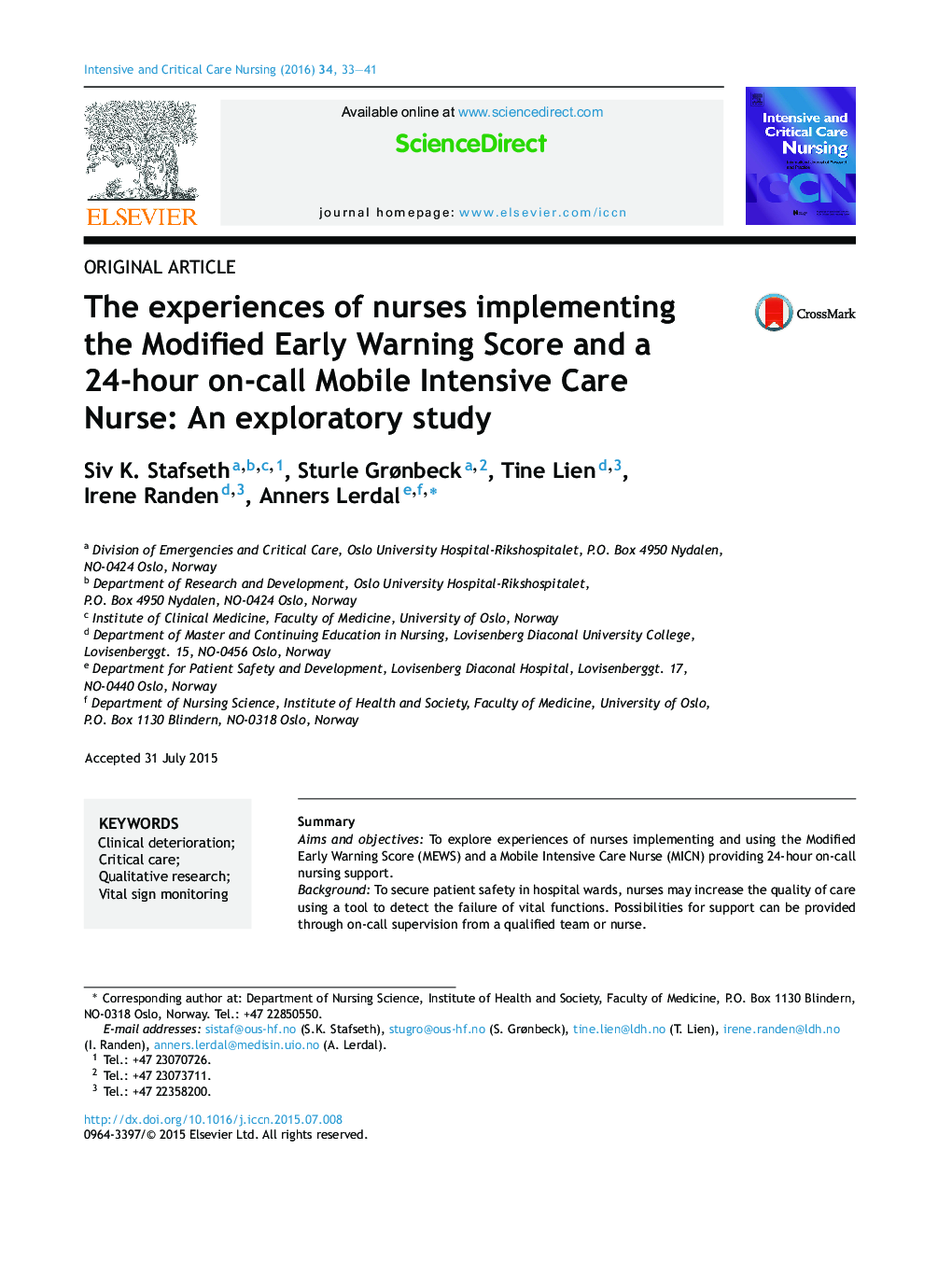| Article ID | Journal | Published Year | Pages | File Type |
|---|---|---|---|---|
| 2652047 | Intensive and Critical Care Nursing | 2016 | 9 Pages |
SummaryAims and objectivesTo explore experiences of nurses implementing and using the Modified Early Warning Score (MEWS) and a Mobile Intensive Care Nurse (MICN) providing 24-hour on-call nursing support.BackgroundTo secure patient safety in hospital wards, nurses may increase the quality of care using a tool to detect the failure of vital functions. Possibilities for support can be provided through on-call supervision from a qualified team or nurse.DesignThis exploratory qualitative investigation used focus group interviews with nurses from two wards of a university hospital in Norway.MethodsA purposive sample of seven registered nurses was interviewed in focus groups. A semi-structured guide and an inductive thematic analysis were used to identify interview themes.ResultsThree themes emerged: (1) experiences with the early recognition of deterioration using the MEWS, (2) supportive collaboration and knowledge transfer between nurses and (3) a “new” precise language using the score for communicating with physicians. The use of scores and support were perceived as improving care for deteriorating patients and for supporting the collaboration of nurses with other professionals.ConclusionIn our study, nurses described increased confidence in the recognition of deteriorating patients and in the management of such situations. The non-critical attitude, supportive communication and interactive learning according to the MICN were essential elements for success.
